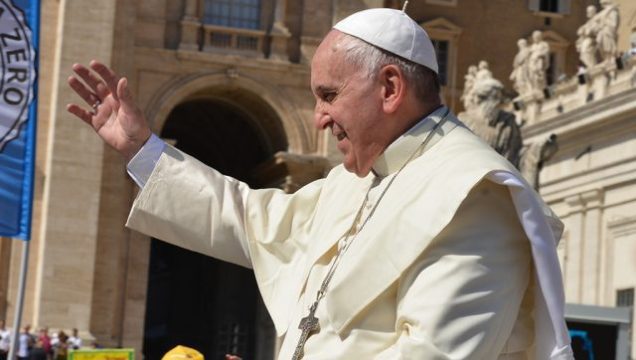Pope Francis, born Jorge Mario Bergoglio, was one of the most influential and beloved figures in the world. Since his election as the 266th pope of the Roman Catholic Church in 2013, he captured the hearts and minds of millions with his humility, compassion, and commitment to social justice. Known for his progressive stance on a range of issues, from climate change to poverty, Pope Francis redefined what it meant to be a modern spiritual leader.
Sadly, Pope Francis passed away on April 21, 2025, Easter Monday, at the age of 88. His death marks the end of an era of transformative leadership in the Catholic Church, leaving behind a profound legacy of compassion and progress.
In this article, we explore 10 fascinating facts that offer a deeper insight into the life of this extraordinary pope. From his humble background to his groundbreaking initiatives and unique personal habits, these facts reveal the man behind the white cassock and highlight the values that guided his papacy. Whether you’re a lifelong Catholic or someone interested in global leadership, Pope Francis’s story is one of inspiration, transformation, and hope.
10. One of the Most Followed World Leaders on Twitter (Now X)
Pope Francis’s official Twitter account, @Pontifex, has more than 50 million followers across multiple languages. His thoughtful messages of peace, faith, and hope make him one of the most influential world leaders on social media.
9. He’s a Fan of Football (Soccer)
Pope Francis is a lifelong football (soccer) enthusiast, and his passion for the sport is well known. Born and raised in Buenos Aires, Argentina — a country where football is more than just a game — he has been a devoted supporter of San Lorenzo de Almagro, one of Argentina’s most historic football clubs, since his youth. In fact, he still carries his membership card, and San Lorenzo even won a major championship shortly after he became pope — a moment many fans jokingly dubbed a “miracle.”
Pope Francis often uses football metaphors in speeches, especially when speaking to young people, athletes, or teams visiting the Vatican. He emphasizes the values of teamwork, discipline, respect, and inclusion, suggesting that sport can be a powerful tool for education and social unity.
In his role as pope, he has received jerseys and visits from global football stars, including Lionel Messi, who has been praised by Francis for his humility despite worldwide fame. Football may seem like a small detail, but it reflects the pope’s deeply human side — someone who shares in the everyday joys and passions of people around the world.
8. His Real Name Is Jorge Mario Bergoglio
Before he became known to the world as Pope Francis, his name was Jorge Mario Bergoglio. He was born on December 17, 1936, in Buenos Aires, Argentina, to Italian immigrant parents. As a young man, Bergoglio studied chemistry, worked various jobs, and later entered the seminary, eventually becoming a Jesuit priest — a path that shaped his deeply humble and service-oriented worldview.
When he was elected pope in March 2013, he chose the papal name “Francis” — a historic first. No previous pope had ever taken that name, and his choice was deeply symbolic. It was inspired by St. Francis of Assisi, the revered 13th-century saint known for his dedication to poverty, peace, and care for the environment. The name signaled Bergoglio’s commitment to simplicity, compassion, and a Church that prioritizes the poor and marginalized.
By choosing this name, Pope Francis sent an immediate and powerful message to the world: his leadership would be marked by humility, social justice, and reform, aligning closely with the values of his namesake. Understanding his original identity — Jorge Mario Bergoglio — helps us appreciate how his personal journey shaped his global impact.
7. He Speaks Multiple Languages
Pope Francis is multilingual, which is a major asset in his role as the spiritual leader of more than a billion Catholics worldwide. His native language is Spanish, but he also speaks Italian and Latin fluently — the latter being the official language of the Roman Catholic Church. In addition, he understands German, having studied there in the past, and has a working knowledge of French, Portuguese, and English.
Although he often sticks to Spanish or Italian during public addresses, Pope Francis frequently incorporates other languages when speaking to international audiences, offering greetings or blessings in multiple tongues to connect with people around the world. During major events like Christmas and Easter, he delivers parts of his message in dozens of languages, showing the global scope of the Church and his personal commitment to unity through communication.
His ability to communicate across cultures and nations has made him one of the most accessible and relatable popes in modern history. Even when he speaks in simpler terms, his message often resonates powerfully — bridging language barriers with his sincerity, humility, and charisma.
6. He’s the First Jesuit Pope and the First Pope from the Americas
Pope Francis made history twice with his election in 2013. Not only is he the first Jesuit pope, but he is also the first pope from the Americas, breaking with over 1,200 years of papal tradition dominated by European leaders.
As a Jesuit, he brings a unique perspective to the papacy, deeply influenced by the order’s founding principles of education, missionary work, social justice, and humility. The Society of Jesus (Jesuits) is known for its focus on intellectual pursuits and social engagement, and Pope Francis’s approach to leadership aligns with these values. His papacy is marked by a commitment to reform, compassion for the poor, and a call for the Church to engage more deeply with modern society.
Being the first pope from Latin America adds another layer of significance to his election. Born in Buenos Aires, Argentina, he is the first non-European pope in over a millennium. His background gives him a unique connection to the global South and the millions of Catholics in Latin America, where the faith is deeply rooted in everyday life. His election also signaled a shift in the Church’s focus towards a more inclusive, global vision, with a renewed emphasis on issues like poverty, inequality, and social justice — themes that resonate strongly with the diverse and often marginalized communities in the Americas.
Together, these groundbreaking facts make Pope Francis a leader whose identity is shaped by a blend of tradition, intellectualism, and a commitment to global service.
5. Pope Francis Lives Simply
One of the most striking aspects of Pope Francis’s papacy is his commitment to simplicity and humility, which stands in stark contrast to the traditional luxury often associated with the papacy. Shortly after his election in 2013, Pope Francis made a decision that would define his leadership: he refused to live in the Apostolic Palace, the lavish residence typically reserved for popes. Instead, he chose to live in the Casa Santa Marta, a modest guesthouse within Vatican City where priests, bishops, and cardinals also stay.
His choice to live in simpler accommodations was a clear statement of his belief in humility and service to others, reinforcing his message that the Church should stand with the poor and marginalized. Beyond his living quarters, Francis is known for his personal lifestyle, which includes cooking his own meals and making everyday choices that reflect his disinterest in material wealth.
Unlike many world leaders who are chauffeured in luxury cars, Pope Francis famously drives a small Fiat 500, preferring practicality over extravagance. This simplicity extends to his fashion choices as well; he’s often seen wearing modest papal robes and shoes, rather than more ornate or expensive attire.
His refusal to embrace the trappings of wealth has won him admiration from people around the world, as it reflects his authenticity and focus on the spiritual mission of the Church rather than its institutional power. Pope Francis’s lifestyle offers a model of humility and sacrificial leadership, which has had a profound impact on how he’s perceived globally.
4. He Washes Feet of the Marginalized
One of the most powerful and symbolic actions of Pope Francis’s papacy is his decision to wash the feet of the marginalized, particularly on Holy Thursday during the Maundy Thursday service. Traditionally, this ritual involves the pope washing the feet of 12 priests to commemorate Jesus’s act of humility and service to his disciples. However, Pope Francis chose to break with tradition in order to make a bold statement about inclusivity, humility, and social justice.
Since becoming pope, Francis has washed the feet of individuals from marginalized and underrepresented groups, such as Muslim refugees, women, and prisoners. His decision to include women and non-Christians in the ritual was groundbreaking and controversial at the time. It demonstrated his belief in the dignity of all people, regardless of gender, faith, or social status, and highlighted his commitment to human rights and compassion.
This act of washing feet is not only a religious symbol of humility but also a visual manifestation of Pope Francis’s broader message: that the Church’s role is to serve the poor, the oppressed, and the forgotten. By choosing to wash the feet of those often overlooked by society, he has brought attention to issues of poverty, discrimination, and social exclusion, reinforcing the idea that the Church should be a force for compassion and justice in the world.
Pope Francis’s choice to wash the feet of the marginalized has deeply resonated with people worldwide and remains one of the most memorable acts of his papacy, underscoring his unwavering commitment to the values of love, equality, and service.
3. Pope Francis has a Background in Chemistry
Before Pope Francis became known as the spiritual leader of the Catholic Church, his life took an unconventional turn. Long before his entry into the seminary, Jorge Mario Bergoglio (Pope Francis’s birth name) spent his early years pursuing a career in science. He initially studied chemistry at the Technical Secondary School in Buenos Aires, Argentina. Although he eventually chose a religious vocation, his background in chemistry significantly shaped his worldview, emphasizing precision, discipline, and a structured approach to problem-solving.
In addition to his chemistry studies, Pope Francis worked as a chemistry technician in a laboratory, performing technical tasks. His scientific training helped him develop a keen attention to detail and a deep respect for logic and order — qualities that are reflected in his thoughtful, reasoned approach to leadership within the Church. This scientific training, however, did not diminish his spiritual path. Instead, it gave him a unique perspective on the intersection of faith and reason, a theme that he frequently touches on in his speeches.
Although Pope Francis ultimately chose to join the Jesuits and pursue a path in theology, his early years in science provide an interesting layer to his character. They contribute to his pragmatic and compassionate approach to social and environmental issues, such as climate change and poverty. His encyclical Laudato Si’, for example, demonstrates his understanding of science and ecology, calling for action on climate change while emphasizing moral responsibility toward creation.
This scientific background also enables Pope Francis to engage with the broader global community, advocating for education, research, and scientific progress in ways that respect both humanity and the environment.
2. He Took a Groundbreaking Stand on Climate Change
Pope Francis has become one of the most influential religious voices on the issue of climate change, urging both religious and secular communities to act urgently for the protection of the environment. In 2015, he issued his encyclical Laudato Si’, which became a landmark document in the Church’s engagement with environmental issues. In this letter, Pope Francis calls for a global ecological conversion, urging individuals, communities, and governments to recognize the moral and ethical responsibility to care for God’s creation.
What sets Laudato Si’ apart is its comprehensive approach, blending scientific evidence with Catholic theology, and emphasizing the interconnectedness of human beings and the environment. Pope Francis made it clear that climate change is not just an environmental issue, but also a social justice issue, as the poor and vulnerable are often the hardest hit by its effects. By framing the crisis in this way, he made the case that climate change disproportionately affects the disadvantaged, many of whom are already living in conditions of poverty and marginalization.
The document also challenged political and economic systems, criticizing the excessive consumption and wastefulness that contribute to environmental degradation. It called for a shift toward more sustainable lifestyles, particularly in developed nations, and emphasized the need for renewable energy and sustainable agriculture to address both human and environmental well-being.
Pope Francis’s leadership on climate action has garnered global attention and praise, even from environmental organizations, who have lauded him for using his platform to influence policy discussions at both the national and international levels. His stance has led to stronger collaboration between religious communities and environmental activists, who have found common ground in advocating for a greener, more just world.
His call for action on climate change continues to resonate globally, serving as a reminder that the future of the planet is intrinsically linked to the well-being of its inhabitants, especially the poorest.
1. Pope Francis Diverse Early Jobs
Before becoming Pope Francis, Jorge Mario Bergoglio lived a life that was anything but typical for someone who would later rise to lead the Catholic Church. As a young man, he didn’t immediately enter the seminary but instead explored a variety of different careers. This diverse range of early jobs helped shape his character and gave him a broad perspective on life, far removed from the cloistered world of theology.
After completing his education, Bergoglio worked as a chemical technician, where he utilized the skills he had learned during his studies in chemistry. In fact, he worked in a laboratory, gaining hands-on experience and contributing to the technical aspects of his community. This scientific background would later influence his balanced, reasoned approach to problem-solving, especially when dealing with complex social and environmental issues during his papacy.
However, his career took a more spiritual turn when he joined the Jesuits in 1958, at the age of 21, where he pursued his religious studies. But even during his years in the seminary and before his ordination as a priest, Pope Francis had other experiences that shaped his leadership. He worked as a nightclub bouncer and also held a variety of teaching roles in the Jesuit order, which helped develop his ability to connect with people from all walks of life.
These early jobs — from chemical technician to bouncer, and then to teacher — are often referenced by Pope Francis as key moments that influenced his understanding of the world. They provided him with a well-rounded perspective, helping him connect with ordinary people and understand the diverse needs of the world’s population. These experiences continue to inform his humble leadership style, grounded in real-world knowledge and empathy.



